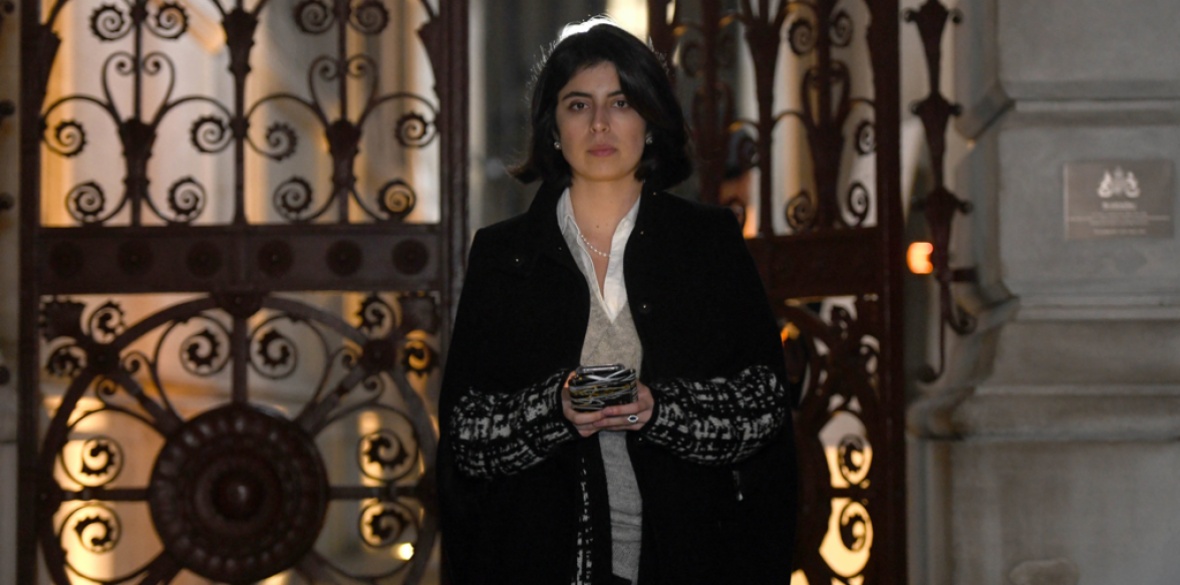This is the last article you can read this month
You can read more article this month
You can read more articles this month
Sorry your limit is up for this month
Reset on:
Please help support the Morning Star by subscribing here
THE release of doctoral student Matthew Hedges from the nightmare of a life sentence in a United Arab Emirates jail is a welcome surprise for him, his family and friends.
Foreign Secretary Jeremy Hunt is basking in the limelight as the hero of the hour, having, apparently, been able to press the repressive regime more effectively than either he or his predecessor Boris Johnson could do for Nazanin Zaghari-Ratcliffe in Iran.
However, Hedges’s wife Daniela Tejada is more deserving of that status, having declined to abide by Foreign Office advice to maintain public silence over her husband’s fate and declaring openly that too little was being done by the British government.
She is correct to recognise that the movement she mobilised among the media, academics and the wider public made it more difficult for Hunt to hide from scrutiny.
Undoubtedly, he benefited from the UAE having been more amenable to pressure because of divisions that have arisen with erstwhile close regional ally Saudi Arabia over their joint involvement in Yemen.
While Riyadh prefers to see its influence ensured in its southern neighbour by a return to power of President Abdrabbuh Mansur Hadi, the UAE has an eye on detaching Yemen’s former British protectorate of South Arabia.
Whether Hunt threatened to reconsider Britain’s supply of arms to the UAE, bilateral trade or close links that have seen Doha become wealthy UK citizens’ playground while their UAE counterparts buy prime properties in London as investments or boltholes is a moot point.
But it is likely that hereditary UAE President Khalifa bin Zayed al-Nahyan would have had this possibility in his mind.
He and the despotic royal family that rule Abu Dhabi and, “by custom,” the entire UAE brook no challenge to their rule, whether in the media or through democratic involvement.
But they depend on the relationship with the former colonial power, which was instrumental in cobbling together the various emirates into an outwardly “independent” state to meet British imperialism’s needs, in terms of oil and gas, regional military bases and crushing ideas of democracy and Arab nationalism.
The pardon given to Hedges, which was dressed up as just one of the “clemency orders issued on the occasion of the UAE 47th National Day anniversary,” serves to show that the colonial power still calls the shots.
That reality further indicates that repression and denial of democracy in the UAE operates not simply by whim of the hereditary monarchy but with Britain’s acquiescence.
After the people’s uprisings in Tunisia and Egypt, sparking the lazy journalistic label of an Arab Spring, 132 Emirati citizens signed a petition in March 2011 requesting the right to vote in elections.
Some were charged with publicly insulting top officials and conspiring with foreign powers, while further dozens of human rights activists were rounded up the following year on charges of threatening state security and undermining public order.
The UAE passed a cybercrime law in 2012 allowing the prosecution and imprisonment of people who use information technology to criticise top officials, argue for political reform or organise unlicensed demonstrations.
Britain and its Nato allies responded decisively by voting in unison for the UAE to be elected onto the UN Human Rights Council.
Hedges’s arrest as he prepared to leave home after completing a research trip on UAE policies in May has drawn attention to the repressive nature of the state.
When will Britain move beyond one UK citizen’s dilemma to consider the fate of democratic activists suffering under a dictatorship that our government props up?











